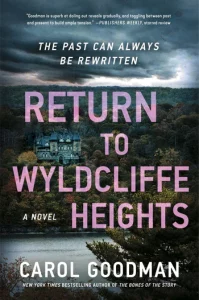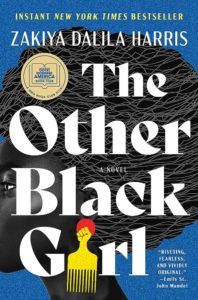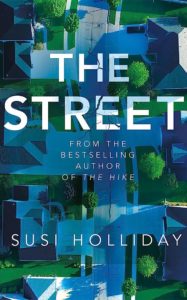★★★★
Agnes Corey isn’t your typical New York editorial assistant. She hasn’t earned a degree in publishing, didn’t go to a ritzy college, and her past is “a story of abandonment, foster homes, petty crimes, and state institutions.”
She works at a near-bankrupt Manhattan legacy publisher that hasn’t had a best seller since the early 1990s and is likely to be swallowed up by a conglomerate. That might explain why even as a probationary hire, she’s grossly underpaid, earning much less than the current real-life average salary for her job.
Corey is troubled, vulnerable, poor, plagued by nightmares and memories of her mentally ill mother. Adding to the misery is being so broke she can only afford to live in a crummy hostel until luck and daring take charge of her life. She’s hired to help a famous, reclusive author of a very Gothic novel adored by millions, the novel that put her publishing house on the map. Fans have been ravenous for more content from author Veronica St. Clair, a sequel to be exact, because the first book had an ambiguous ending.
The mansion Corey comes to at night and in the rain (of course!) is like every castle or mansion from Anne Radcliffe through the Brontës to Shirley Jackson and beyond: eerie, overwhelming, oozing menace and mystery. Even better, it was once a mental institution and like Shirley Jackson’s Hill House, it seems a bit mad itself.
The author name checks plenty of celebrated Gothic works, and the novelist’s name even echoes the heroine of The Mysteries of Udolpho, Emily St. Aubert. Goodman deftly deploys time-tested Gothic tropes: scary scenery, shadows, the damsel in distress, exploring dark corners, paranoia, claustrophobia, imagined phantoms, dreadful weather, real and misplaced fears–and of course the house that seems like a brooding, malevolent being.
The author can even make the West Village in Manhattan seem creepy and mysterious–at least at night. She also writes good satire of the publishing business while giving it the ironic hipster appeal of vinyl and flip phones.
As the novel develops, Corey’s nightmares are so intense that they bleed into her everyday reality, in part because she’s a sleep walker. When she starts taking dictation from the reclusive author whose life might echo the storyline of the original best seller, is that fact or fiction? Is she a remotely reliable narrator? If she is, can we trust Veronica St. Clair? The novel more and more feels like a Russian nesting doll as stories keep appearing within other stories.
Readers may either be fascinated or thrown by the way the book slowly drifts into a tale of drugs and Goths in New York whose soundtrack could easily be Lou Reed’s Street Hassle. And the focus on Corey’s dreams can sometimes feel excessive. For a deeper immersion in the Gothic style, I highly recommend Sarah Perry’s brilliant, beautifully-written novel Melmoth which revisits the 1820 novel Melmoth the Wanderer by Charles Robert Maturin and turns it inside out.
Lev Raphael spent his senior year of college reading all the classic Gothic novelists, some of them in period editions. The author of twenty-seven books in genres from memoir to mystery, he has reviewed books for The Detroit Free Press, The Washington Post and other outlets. His most recently published short story “Lost in London” is a Gothic ghost tale.




